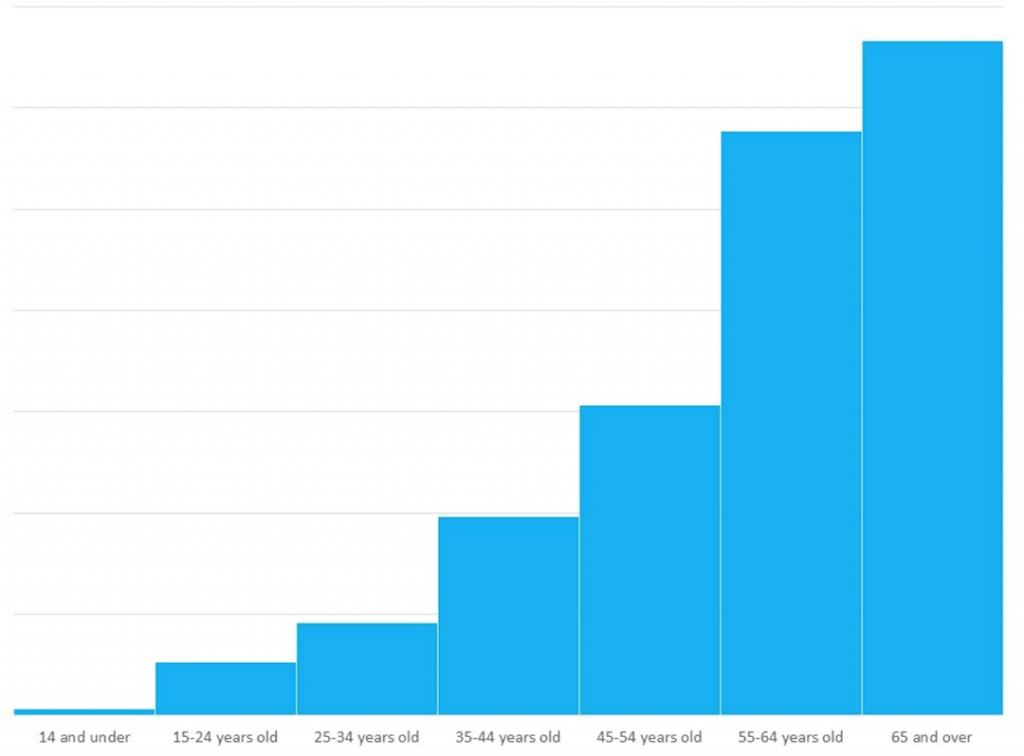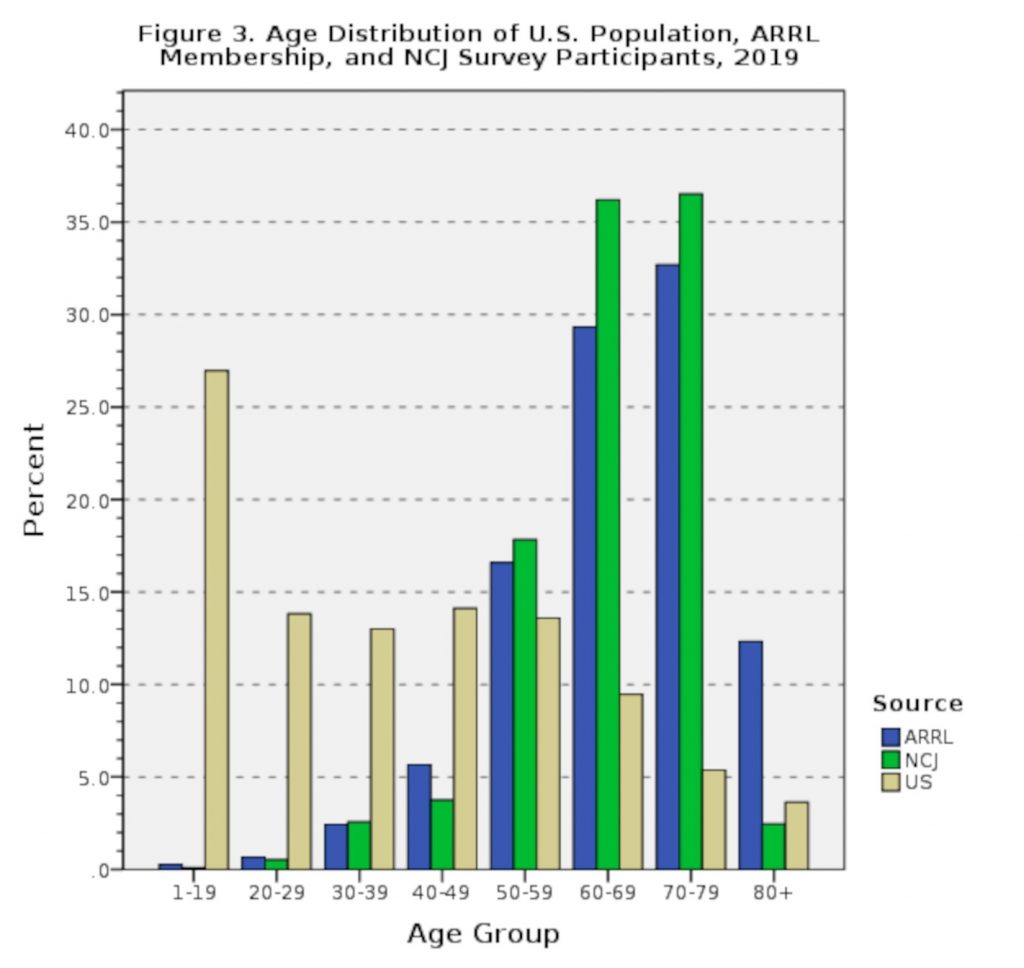“People still do that?!”
-People when you tell them you’re a ham.
At first, I thought about quoting Mark Twain’s famously misquoted line concerning the “greatly exaggerated” reports of his death. However, a more telling example of ham radio’s supposed demise rests with the public. When I tell people that I am into ham radio—family, coworkers, friends—most of them are a bit surprised to hear that it’s still a thing that a few of us do.
A common refrain of many of our own practitioners is that ham radio is dead or dying, yet we all rightly know that not to be true. Furthermore, you may also be a bit surprised to hear these six words: There is youth in ham radio!
Ham radio used to be a hobby practiced almost exclusively by young people. Flipping through the Classic Radio sections of QST shows many stories of young adults and teens tinkering and hacking with tube rigs and installing antennas on their roofs. And these were in times when instantaneous communication to almost anyone was already ubiquitous…and no, it wasn’t cell phones and the internet.
But then something changed. Seeing young people at hamfests and hearing them on the air became a rarity. Many say it was the advent of cell phones and the internet. What we do know today is a much different picture than the pre-internet era.
But no study definitively points to that as being the cause of a drop in the numbers of youth entering the hobby. In fact, almost no studies exist. But thanks to research by Frank Howell, K4FMH,and amateur surveyors like Dustin Thomas, N8RMA, we have a snapshot of the realities of age demographics in amateur radio. Look at the charts and see for yourself; about 60-70% of ham radio operators are over the age of 55.

Graph from N8RMA’s 2019 State of the Hobby Survey

Age group chart comparing NCJ survey, ARRL membership data, and U.S. Census records on age, K4FMH
Despite those very thin slices representing young people in ham radio, I’m happy to share that youth communities are thriving.
Youth Communities
The following section lists all the communities of young hams that I know of. Many of them were started within the last few years.
Youngsters On The Air (YOTA)
YOTA began in IARU Region 1 (Europe and Africa) in 2011 as a loosely knit group of young hams enjoying the hobby with friends. It quickly expanded into an officially recognized youth advocacy organization with yearly camps, many on-the-air and online events, and a group chat.
I was fortunate to attend the 2016 YOTA camp in Austria, with the intent of learning how we could bring the YOTA ideals and mission to IARU Region 2 (the Americas). After five years (no thanks to COVID-19), the U.S. is hosting the first IARU R2 YOTA Camp in 2021 after a successful virtual YOTA day in 2020.
YOTA R1 is also organizing a contest event on May 22, 2021. Youth (under age 25) are encouraged to get on the air and put themselves in the middle of the pileups! Find more information here.
Young Amateurs Radio Club (YARC)
YARC is an online-only community of young hams that meets exclusively on Discord (and on the air, of course). I’m the current president and one of the community’s oldest members. Not only do they build events and activities, YARC has some of the best camaraderie among young hams. All ages are invited to join—and it’s free! Get more details here.
Young Amateurs Communications Ham Team (YACHT)
Formed in 2007, YACHT is one of the longest-running youth organizations I know of. It has over 350 members and is operated by Ed Engleman, KG8CX and a team of 50 adult mentors. They mostly operate on their Facebook group, have a weekly Echolink net, and share many other youth nets on their website.
Youth-Friendly Organizations
Radio Club of America
The RCA takes the cake in terms of time spent promoting youth in amateur radio. Carole Perry, WB2MGP, has been instrumental in keeping the face of amateur radio looking as young as possible through her many youth programs and activities. Her Youth Forums have spotlighted hundreds of young hams since 1987 and always pack the seats at Dayton Hamvention®. More information about RCA’s youth programs can be found at the Radio Club of America website youth activities page.
Remote Ham Radio
Accessing amateur radio through remote stations is a pivotal part of advancing the state of the hobby. Remote Ham Radio (RHR) understands this and has a youth program that gives 300 minutes of operating time each month at no cost to hams 25 and younger. It has been so popular that some stations being built and remoted are exclusive to youth! Many young hams who take this opportunity are some of the greatest contesters I know. Get more information at Remote Ham Radio’s website.
ARRL
The American Radio Relay League has a vast number of programs, activities, resources, articles, and scholarships geared toward young hams. They also have dedicated volunteers who provide coordination for young people in most ARRL sections.
- General ARRL Youth Resources
- Section Youth Coordination Information
- Scholarships and Grants
- ARRL Youth@HamRadio.Fun Columns by N0SSC or clickhere
(The Former) K4AMG Memorial Amateur Radio Club
The K4AMG club in Chesapeake, VA, always comes up in my research for youth in ham radio. For many years they were a role-model club, realizing that “promoting a hobby in amateur radio could be used to bridge the way to promoting the STEM disciplines.”
However, it’s with great sorrow to report that the club and the Great Bridge High School Amateur Radio Club (W4GBH) were disbanded on December 31, 2020. It goes to show that it’s not an easy job, and is testimony to the changing priorities of education.
Long Island CW Club
LICW really knows how to teach CW. Better yet, they know how to teach it to kids for free, online. They’ve been doing remarkable work teaching dozens of youth CW throughout the COVID-19 pandemic, and they’re always taking more students. Check out their web page on teaching homebound children Morse Code.
If your club, organization, or community has a youth program(s), or just a large contingent of young amateurs, please let me know! sterling@n0ssc.com

